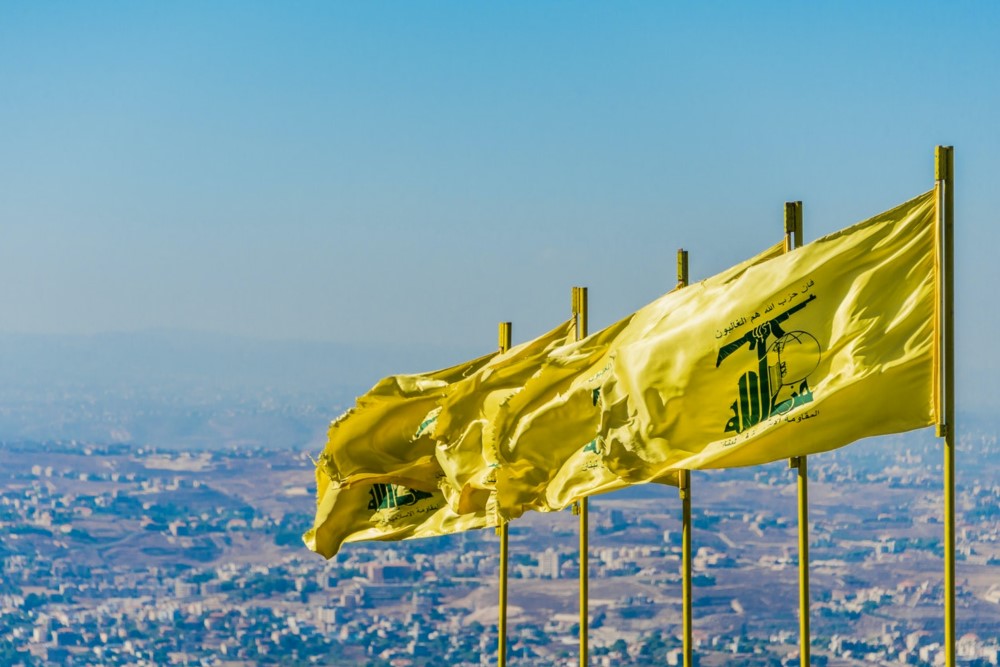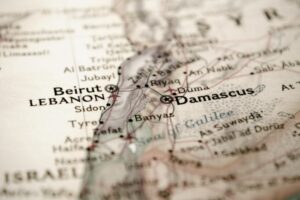
With Hezbollah suffering painful blows in its escalating military clash with Israel in Lebanon, questions loom over the organization’s future, particularly in light of substantial losses within its leadership ranks.
The group, currently the most powerful non-state actor in the Middle East, lost most of its military chiefs in the ongoing conflict.
As Hezbollah’s death toll mounts, there is increasing speculation that Israel may eliminate the group’s leader, Hassan Nasrallah. Arab affairs analyst Avi Issacharoff wrote that killing Nasrallah would shock the organization and could pave the way for a quick ceasefire.
But Israel’s stunning ability to keep eliminating senior commanders and leaders raises a critical question: Can Hezbollah survive if it loses its entire leadership, including Nasrallah?
Legacy of resilience
Historically, Hezbollah has demonstrated the ability to adapt and persevere, even in the face of severe blows to its leadership. The most prominent example came in 1992 when Israel assassinated Abbas Musawi, the group’s previous leader.
Musawi’s death, though a significant blow, paved the way for Nasrallah’s rise to power. Under his leadership, Hezbollah transformed from a small terrorist group into a political and military powerhouse, entrenched deeply within Lebanon’s socio-political fabric.
In retrospect, the transition of power was swift and successful. Instead of fracturing, Hezbollah consolidated and grew stronger. The organization’s resilience was largely based on its deep ideological roots, structure, and extensive support from external powers, particularly Iran.
So far, Hezbollah has shown that it is not solely reliant on individual leaders. The group operates as a highly organized and disciplined entity, with strong internal mechanisms that allow it to weather leadership transitions. In this context, the loss of its top command, while disruptive, may not necessarily be existential.
Iran’s strategic support
Iran’s backing remains a pivotal factor in Hezbollah’s capacity to endure leadership losses. As a proxy force in Tehran’s regional strategy, Hezbollah’s strategic significance has grown over the years, with Iranian financial, logistical, and military support serving as a critical lifeline.
Even if Nasrallah and Hezbollah’s entire leadership were eliminated, Iran’s influence could guide the selection of successors and ensure continuity.
Mideast expert Ronit Marzan speculated that as Nasrallah’s status declines, Tehran may decide to replace him with a seasoned military leader, possibly from the ranks of Iraqi militias.
Notably, Iran has historically shown itself capable of sustaining its proxies and rebuilding leadership structures as needed, as evidenced by its involvement in Iraq, Syria, and Yemen.
Moreover, Hezbollah’s multifaceted role in Lebanon – including its political presence and control over social welfare networks – provides a buffer against collapse. Unlike smaller terror groups that disintegrate when their leaders are lost, Hezbollah is embedded within Lebanese society, making its survival more likely even amid leadership decapitations.
Can Hezbollah shield its leaders?
Despite Hezbollah’s resilience and Iran’s backing, the potential loss of Nasrallah and the entire top echelon of military commanders would present unprecedented challenges.
Replacing experienced leaders and commanders at the top could be a slow and arduous process, raising the possibility of internal fractures or reduced operational effectiveness. This could place Hezbollah in a difficult position, especially if the group is forced into repeated military clashes with Israel.
The evolving nature of warfare also presents new challenges. The precision of Israeli strikes and the intelligence penetration of Hezbollah’s ranks suggest that the group’s leadership is more vulnerable than ever.
Israel’s technological superiority, combined with its intimate knowledge of Hezbollah’s inner workings, raises doubts about whether the organization can shield its leadership from further assassinations.
The psychological and operational toll of losing multiple key figures in quick succession could push Hezbollah into disarray, complicating any succession plans.
The Nasrallah factor
The loss of Secretary-General Nasrallah would be a symbolic and strategic blow of enormous magnitude. After all, he has been Hezbollah’s public face and top leader for over 30 years.
Nasrallah’s vast experience, oratory skill, and close ties with Iranian leaders cemented his dominant role within the organization. His absence could create a vacuum that is difficult to fill, especially given the psychological impact on Hezbollah’s ranks and the broader Shiite community.
Nasrallah has maintained an aura of invincibility, remaining out of sight for long periods and emerging only to deliver televised speeches. His ability to communicate with the public and his deft handling of previous crises played a crucial role in maintaining Hezbollah’s popularity and cohesion.
While a successor may rise, it is unlikely that he would match Nasrallah’s symbolic stature or command the same respect and loyalty. Moreover, his death could embolden Hezbollah’s adversaries and weaken the group’s standing in Lebanon’s fragmented political landscape.
On the other hand, anger at the Hezbollah leader may be rising following recent setbacks, including an Israeli operation to blow up the group’s communication devices. If the current conflict with Israel ends badly, Nasrallah’s stature could quickly decline. [here’s a detailed report on Nasrallah’s weakening position]
A weaker Hezbollah?
While Hezbollah has a track record of surviving leadership losses, the current circumstances are more challenging than ever. Should Israel succeed in eliminating its top brass, including Nasrallah, Hezbollah may face its most significant existential test yet.
However, with Iran’s strategic support and strong roots in Lebanon, Hezbollah has the potential to survive even catastrophic leadership losses -albeit in a diminished and possibly fractured form.
Whether Hezbollah can continue to exert the same influence and military strength without Nasrallah and its top commanders remains an open question.
In any case, the potential loss of Hezbollah’s entire leadership would mark a turning point, altering the dynamics not only within Lebanon but also across the wider Middle East.


